| |||||
| Decades: | |||||
|---|---|---|---|---|---|
| See also: | |||||
Events in the year 1895 in Bulgaria .
| |||||
| Decades: | |||||
|---|---|---|---|---|---|
| See also: | |||||
Events in the year 1895 in Bulgaria .
| | This section needs expansion. You can help by adding to it. (August 2020) |

Stefan Nikolov Stambolov was a Bulgarian politician, journalist, revolutionary, and poet who served as Prime Minister and regent. He is considered one of the most important and popular "Founders of Modern Bulgaria", and is sometimes referred to as "the Bulgarian Bismarck". In 1875 and 1876 he took part in the preparation for the Stara Zagora uprising, as well as the April Uprising. Stambolov was, after Stanko Todorov, Boyko Borisov and Todor Zhivkov, one of the country's longest-serving prime ministers. Criticised for his dictatorial methods, he was among the initiators of economic and cultural progress in Bulgaria during the time of the Balkan Wars.
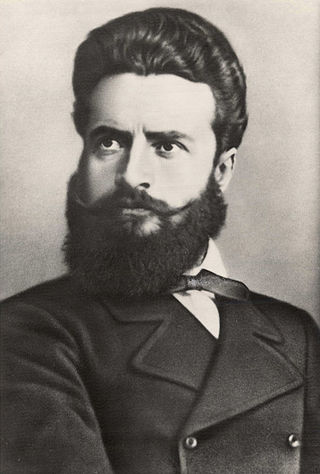
Hristo Botev, born Hristo Botyov Petkov, was a Bulgarian revolutionary and poet. Botev is considered by Bulgarians to be a symbolic historical figure and national hero. His poetry is a prime example of the literature of the Bulgarian National Revival, though he is considered to be ahead of his contemporaries in his political, philosophical, and aesthetic views.

The Principality of Bulgaria was a vassal state under the suzerainty of the Ottoman Empire. It was established by the Treaty of Berlin in 1878.

Ivan Evstratiev Geshov was a Bulgarian politician who served as Bulgarian Prime Minister.
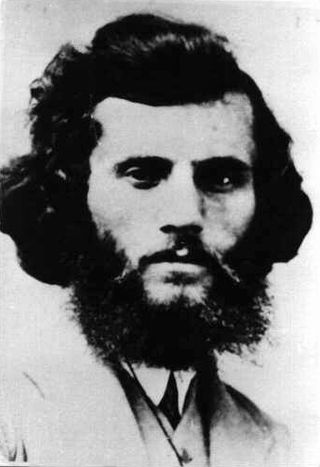
Petko Stoichev Karavelov was a leading Bulgarian liberal politician who served as Prime Minister on four occasions.
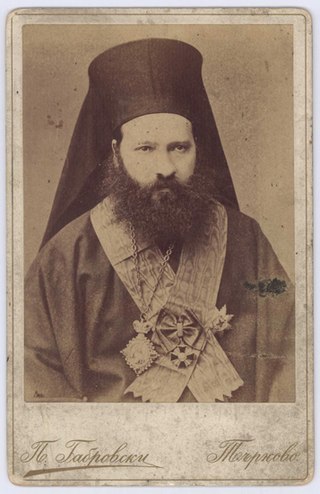
Kliment of Tarnovo, was a leading Bulgarian clergyman and politician. He was also a writer and one of the founders of the Bulgarian Literature Society in 1869.
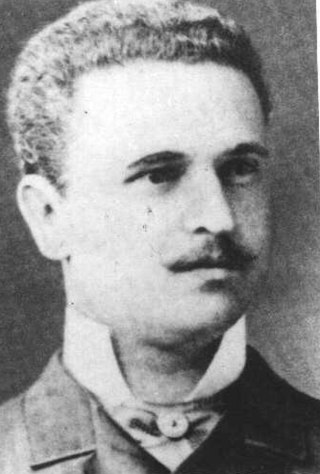
Konstantin Stoilov was a leading Bulgarian politician and twice Prime Minister. Simeon Radev described him as the most European-like of all Bulgarian politicians.
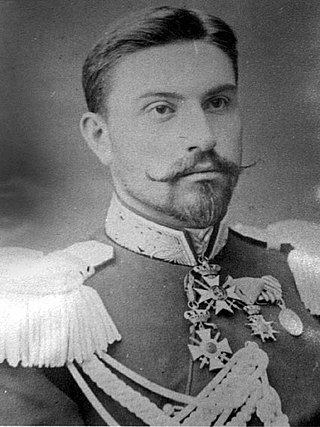
Racho Petrov Stoyanov was a leading Bulgarian general and politician.
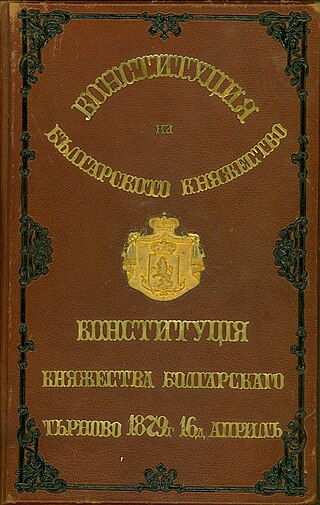
The Tarnovo Constitution was the first constitution of Bulgaria.

Dimitar Panayotov Grekov was a leading Bulgarian liberal politician who also served as Prime Minister.

Dimitar Nikolov Petkov was a leading member of the Bulgarian People's Liberal Party and the country's Prime Minister from 5 November 1906 until he was assassinated in Sofia the following year.

Dimitar Yanev Stanchov, sometimes transliterated as Dimitri Stancioff, was a Bulgarian diplomat and politician who briefly served as Prime Minister.
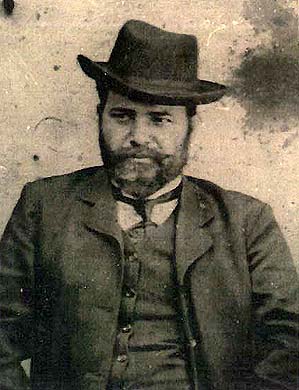
Petar Poparsov or Petar Pop Arsov was a Macedonian Bulgarian revolutionary, educator and one of the founders of the Internal Macedonian Adrianople Revolutionary Organization (IMARO). He is regarded as an ethnic Macedonian by the historiography in North Macedonia.

The Kresna–Razlog Uprising named by the insurgents as the Macedonian Uprising, was a Bulgarian uprising that took place in Ottoman Macedonia, predominantly in the areas of today Pirin Macedonia in late 1878 and early 1879, against Ottoman rule.

Konstantin Velichkov was a Bulgarian writer and public figure.
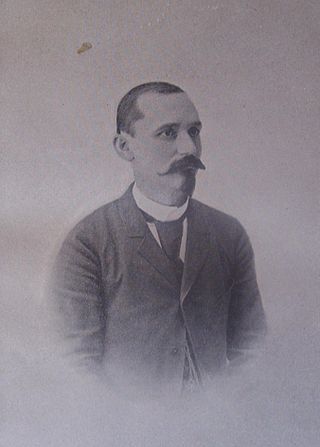
Trayko Tsvetkov Kitanchev was a Bulgarian teacher, social figure, poet and revolutionary. In 1895, he was the first chairman of the Supreme Macedonian–Adrianopolitan Committee, a Sofia-based organization seeking the autonomy of Macedonia and southern Thrace.

Georgi Valkovich Cholakov was a Bulgarian physician, diplomat and conservative politician. Among the leading surgeons in the Ottoman Empire, Valkovich became one of the leaders of the Conservative Party after the Liberation of Bulgaria in 1878. During Stefan Stambolov's government (1887–1894), he was a Bulgarian diplomatic deputy in Constantinople (Istanbul), where he was murdered by political opponents.

Georgi Ivanov Stranski was a Bulgarian physician and politician. A close friend of Hristo Botev, Stranski was an active member of various organizations founded by Bulgarian emigrants in Romania. After the Liberation of Bulgaria in 1878, Stranski was one of the leaders of the Liberal Party of Eastern Rumelia, and its successor after the Bulgarian unification in 1885, the all-Bulgarian People's Liberal Party of Stefan Stambolov. Between the accomplishment of the Bulgarian unification on 6 September 1885 and its international recognition in mid-1886, Stranski was the only ever Commissar of South Bulgaria.

Sava Atanasov Mutkurov was a Bulgarian officer and politician. One of only three recipients of the Order of Bravery 1st grade, he was among the chief architects of the Bulgarian unification (1885) and, as an officer in the young Bulgarian Army, one of its defendants in the Serbo–Bulgarian War (1885). He also served as one of the regents of the Principality of Bulgaria after Prince Alexander of Battenberg's abdication (1886–1887) and was Minister of War in Stefan Stambolov's government (1887–1891).

The People's Liberal Party was a political party in Bulgaria.